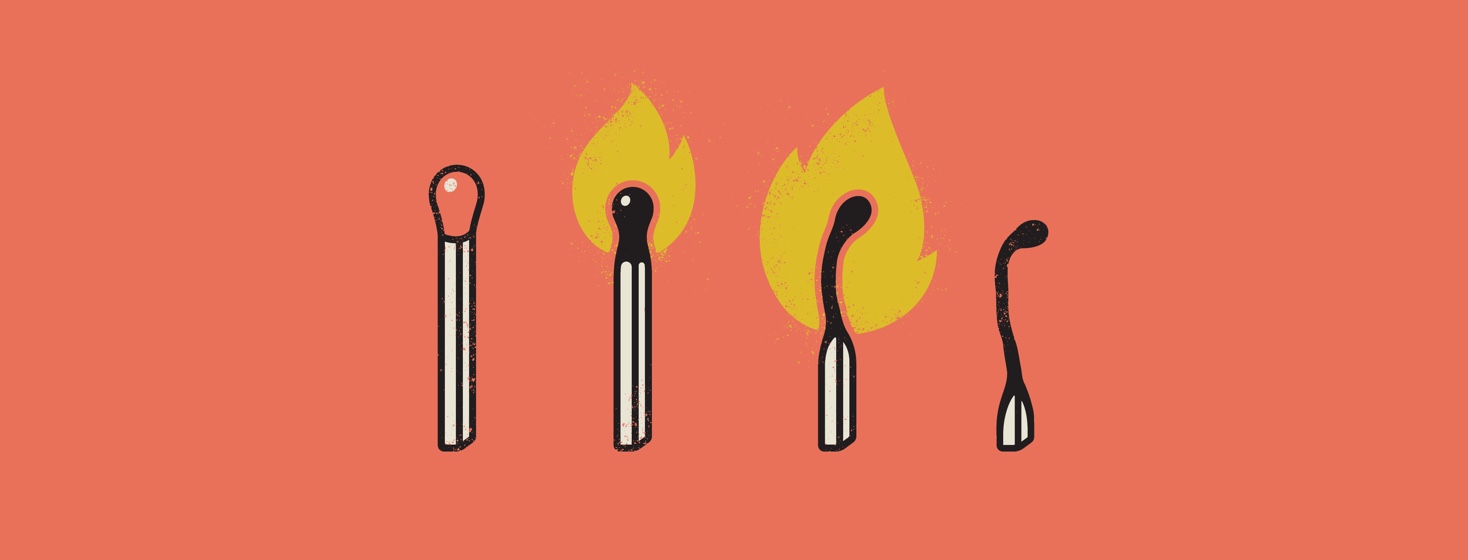The Five Types of Cancer Exhaustion
Everyone knows cancer is exhausting. There is a reason that the image of the gaunt person wrapped in blankets, peering out above sunken cheeks is such an archetype. Cancer wears you out, it wears your body down, and it becomes an all-consuming, unwanted companion. However, there are different types of exhaustion we feel when living with cancer: physical exhaustion, mental exhaustion, information exhaustion, emotional exhaustion, and concern exhaustion.
Physical exhaustion
The first type, physical exhaustion, is the easiest to understand. Nearly all types of cancer treatment available cause fatigue. However, cancer fatigue is an entirely new beast. I have had days in which I slept for 17 hours, woke up, and immediately wanted to go back to sleep (and I did). Most oncologists will recommend that patients listen to their bodies, especially when undergoing chemo and radiation and to rest as much as possible. But the physical fatigue from the stress of treatments, appointments, and attempting to continue on with everyday life takes an incredible toll on the body, leaving one drained.
Mental exhaustion
Mental exhaustion, like any of these categories, is not limited to cancer. However, I’ve found that all five types reveal themselves in spades after a diagnosis. Mental exhaustion is the feeling of utter overwhelm after a long day of appointments. It is the process of managing complex medical decisions and treatments without knowing all of the information you wish you knew. It is the process of trying to think while your brain feels like it’s being repeatedly dunked in pea soup, and also trying to remember what time your next appointment is and what medications you need to take, and when. That’s on top of all of the normal things to remember.
Information exhaustion
Information exhaustion often happens, at least for me, at the end of a long day of appointments when I have received a significant amount of new information, have important decisions to make, and I am mentally exhausted. It tends to fall into step with mental exhaustion. This has been exacerbated significantly since my brain radiation - my brain feels physically tired, and my recall of information and events has slowed significantly.
Emotional exhaustion
Emotional exhaustion occurs when well-meaning people overstep their boundaries in the name of helping. Often, this happens when the person with cancer has few needs at the time, but others continue to insert themselves, despite the person with cancer’s insistence that they do not need the help, the concern, or the emotional uplift. It often occurs concurrently with concern exhaustion.
Featured Forum
View all responsesConcern exhaustion
Concern exhaustion is particularly draining. It occurs when someone is upset with the person with cancer’s diagnosis and pushes the burden of easing their mind onto the individual with cancer. This is the most troublesome type of exhaustion for me, because I refuse to be dishonest about my prognosis, but my words often result in arguments from others who are uncomfortable with what I have to say.
I don’t list these types of exhaustion out as a way to complain or to discourage people from reaching out and being helpful for someone with cancer. I list them only because I often find that many people do not understand how deeply-rooted and complex the exhaustion of the cancer patient can be.
Editor’s Note: We are extremely saddened to share that on Sunday, March 29, 2020, Emily Garnett passed away. We know that Emily's advocacy efforts continue to reach many. She will be deeply missed.

Join the conversation